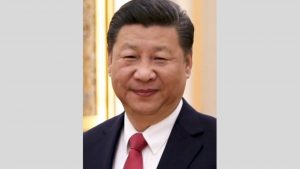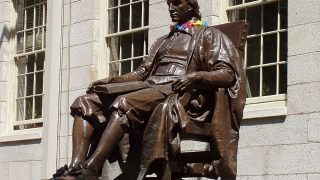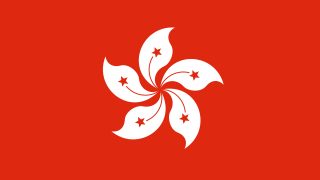Italy did join Belt and Road, but Xi’s visit to Italy was not as smooth and successful as some claimed.

A Great Success? Really?
The ancient Greek said that their most obscure philosopher, Heraclitus, “didn’t say and didn’t hide, but alluded.” Italians like to portray themselves as heirs of both the Greek and Roman civilizations, and those less skilled in the subtle art of allusion often do not understand them. The visit to Italy of Chinese President Xi Jinping on 21-23 March was reported differently in foreign and Italian media. Foreign media (but not their Italian counterparts) portrayed the visit as a total triumph for China. Italy was the first major Western power to join Xi’s Belt and Road Initiative. Although the corresponding Memorandum is vague on specifics, the mere fact that Italy joined is a success for Beijing, and an annoyance for Italy’s European Union and NATO partners.
The Italian leaders insisted that the Memorandum only deals with economy, not politics. Unfortunately for them, its confidential text was leaked to the Financial Times in advance. It also mentions political and cultural cooperation and supports the conclusion by Il Foglio’s Giulia Pompili, one of the Italian journalists most knowledgeable on all matters Chinese, that “in the Belt and Road Memorandum there is really nothing about commerce. It is rather a historic u-turn in Italian foreign policy.”
However, vague Memorandums only work as far as they are implemented. Xi Jinping acted as if he could immediately obtain from Italy an unconditional support to his domestic policy, which includes gross violations of human rights, treating Italy as if it was, with all due respect, Kazakhstan. Here, however, Xi miscalculated, and misunderstood the Italian century-old habit of stop-and-go practices and speaking through allusions.
President Mattarella Mentions Human Rights
First, China always insists that human rights should never be mentioned in bilateral meetings, and certainly should not be mentioned publicly. This plan backfired in Italy, thanks to the Italian President of the Republic, Sergio Mattarella. As the main Italian wire agency, ANSA, reported on March 22, Mattarella “raised the issue of human rights” in his meeting with Xi, and did it publicly.
Bitter Winter had promoted, published, and publicized on March 20 an appeal by 15 NGOs to Mattarella and Italy’s Prime Minister Giuseppe Conte, urging them to raise the issue of human rights when meeting Xi. On March 21, the appeal was mentioned by Il Messaggero, the most popular local newspaper in Rome. A separate appeal was published by international personalities in support of the Uyghurs persecuted in Xinjiang. We don’t know whether these appeals influenced Mattarella, but the fact is, he did mention human rights. This is far from being the rule when foreign leaders meet Xi.
Media Trouble
I mentioned before Giulia Pompili, a senior Italian journalist and expert on China. She was in the Quirinale, Italy’s Presidential palace, during the reception Mattarella offered to Xi. She was approached by Yang Han, a spokesperson for the Chinese Embassy in Rome, who told her: “You should stop badmouthing China.” She initially believed it was a joke and laughed, but Yang insisted: “Don’t laugh. You should stop. I know very well who you are.”
The incident was widely reported as evidence that the CCP believes Belt and Road means it can now dictate Italian journalists what they should write about China. But in fact it cannot. Not only Pompili, but the Italian Association of Journalists and a good number of politicians protested. The attempt to threaten and intimidate a journalist immediately put the CCP in the worst possible light in Italy.
Catholic Cold Shoulders
It is possible that it was Xi who decided not to meet Pope Francis, fearing opposition at home, rather than vice versa. But Xi certainly hoped in a warm welcome by Catholics after the Vatican-China deal of 2018. The CCP may count on the cooperation of two or three senior Catholic journalists, who believe supporting the Chinese regime is the best way to favor a smooth application of the agreement. Although they are, in their own way, part of the Vatican establishment, these journalists do not appear to have a large audience among the Catholics in the pews. The latter would rather read news on China in AsiaNews, or listen to the popular Catholic radio network Radio Maria, whose average daily audience in Italy has been estimated at 1,5 million. AsiaNews noted that Xi expressed an “ideological view of history” in his Italian speeches, and that under Xi “too many things in China —media control, dissidence, religions, foreign trade—have an air of Cultural revolution.”
One of the most followed moments of Radio Maria is its Sunday evening’s talk show. On March 24, Marco Respinti of Bitter Winter hosted there a distinguished panel of critics of the human rights situation in China, including a journalist from the Epoch Times, a newspaper founded by members of Falun Gong, and a member of The Church of Almighty God. Both Falun Gong and The Church of Almighty God are perceived by the CCP as the ultimate xie jiao, or banned “heterodox teachings,” and as arch-enemies of the regime. That they got a tribune in Italy’s, and perhaps the world’s, largest Catholic radio as an indirect consequence of Xi’s visit was not exactly a success for the CCP.
Comedians and Mafia Allusions
There is one thing Xi Jingping tolerates even less than xie jiao or independent journalists, finding himself at the receiving end of irony and jokes. His furious reactions when he is compared to Winnie the Pooh are a case in point.
After Rome, Xi Jinping went to Palermo, Sicily. The most popular Italian comedian is Maurizio Crozza. Although there may be several reasons why Xi decided to visit Sicily, from tourism to connections with local pro-China politicians, Crozza joked that Xi would perhaps go there to meet “those who really matter,” the Mafia. It was, of course, a comedian’s joke. But one the Chinese President would probably not like, given the decade-old discussion by serious academic scholars of the “political-criminal nexus” in China between sectors of the CCP and organized crime.
Rumors of Mafia connections are routine when dealing with Italian politicians. Xi may soon discover that these rumors also affect the preparation and implementation of the Italian Belt and Road agreement: not the best propaganda, for a president who likes to portray himself as a foe of corruption.
source:BITTER WINTER/Massimo Introvigne



